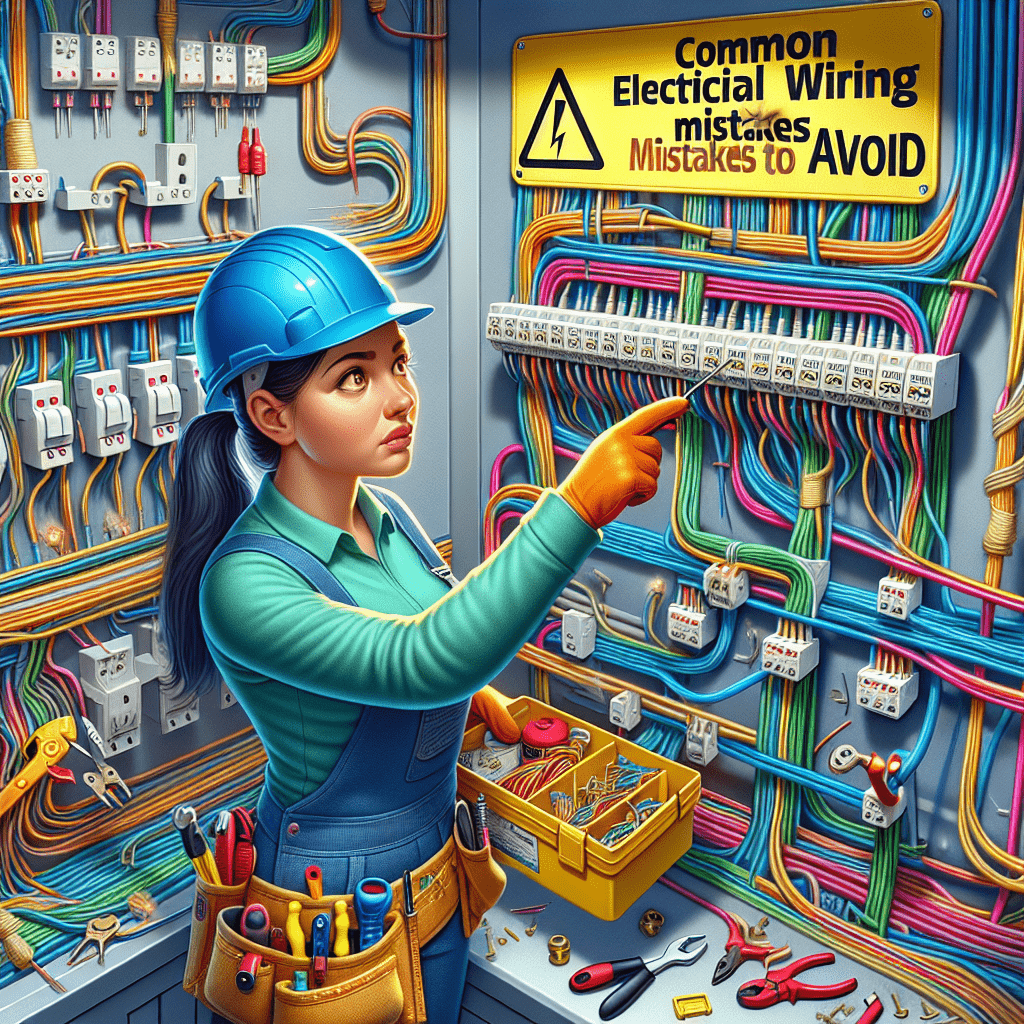When it comes to electrical wiring, mistakes can be costly and dangerous. Improper wiring can lead to electrical fires, shocks, or damage to your appliances. To help you avoid these issues, here are some common electrical wiring mistakes to watch out for:
1. Not Following Electrical Codes
One of the biggest mistakes homeowners make is not following electrical codes. These codes are in place to ensure that wiring is done correctly and safely. By disregarding these codes, you may be putting your home at risk.
2. Overloading Circuits
Another common mistake is overloading circuits. Plugging too many devices into a single circuit can cause overheating and potentially start a fire. Make sure to spread out your devices across different circuits to prevent overloading.
3. Using Incorrect Wiring Gauge
Using the wrong wiring gauge for your electrical needs can also be a costly mistake. If the wire is too thin, it can overheat and start a fire. On the other hand, using wire that is too thick can be a waste of money. Make sure to use the correct gauge for your specific needs.
4. Improper Grounding
Proper grounding is essential to prevent electrical shocks and fires. Make sure your outlets are grounded correctly to ensure the safety of your home and appliances.
5. Not Securing Wiring Properly
Wiring should be secured and protected to prevent damage. Loose wires can be a hazard and may lead to electrical problems down the line. Make sure to secure your wiring properly to avoid any issues.
6. Mixing Line and Load Wires
It’s important to keep line and load wires separate. Mixing them up can cause malfunctions in your electrical system and potentially lead to a fire. Make sure to label your wires correctly to avoid any confusion.
7. Using Incorrect Wire Connectors
Using the wrong wire connectors can lead to loose connections, which can be dangerous. Make sure to use the correct connectors for your specific wiring needs to prevent any issues.
Conclusion
By avoiding these common electrical wiring mistakes, you can keep your home safe and avoid costly repairs. Make sure to follow electrical codes, properly distribute your devices across circuits, use the correct wiring gauge, ensure proper grounding, secure wiring, keep line and load wires separate, and use the right wire connectors. Taking these precautions will help prevent electrical hazards and keep your home running smoothly.
FAQs
Q: Can I do my own electrical wiring?
A: While some minor electrical work can be done by homeowners, it’s best to hire a licensed electrician for more complex tasks to ensure safety and compliance with codes.
Q: How often should I have my wiring inspected?
A: It’s recommended to have your electrical wiring inspected every 5-10 years, or sooner if you notice any issues such as flickering lights or outlets that aren’t working.
Q: What should I do if I encounter electrical problems?
A: If you experience electrical issues such as sparks, burning smells, or tripped circuits, turn off the power immediately and contact a professional electrician for assistance.
TIP:
When in doubt, always consult a licensed electrician for advice and assistance with your electrical wiring needs. It’s better to be safe than sorry when it comes to the safety of your home and family.
#Common #Electrical #Wiring #Mistakes #Avoid

